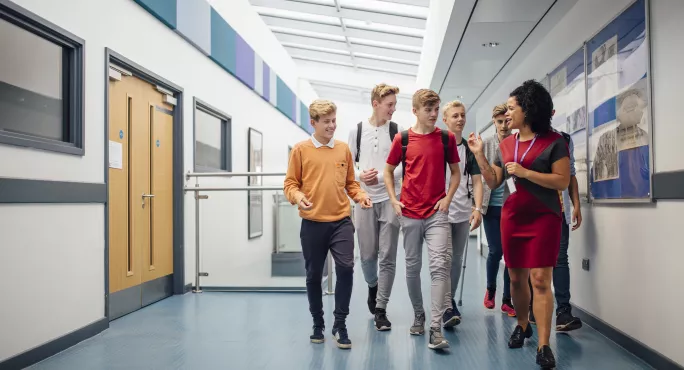
- Home
- Why schools should focus on transition all year round
Why schools should focus on transition all year round

What if we were to tell you that an all-year approach to transition could save you time, reduce your workload and impact on new students entering secondary school in such a way that it would have a significant impact on who they become by the time they leave school?
We can hear the replies now: “Transition? Why are you talking about transition in February?”
However, the reality is schools and their staff should be thinking about transition all year round.
Transition from primary to secondary school
The importance of this is growing, with Ofsted’s The Wasted Years? document getting schools to sit up and start taking more notice of key stage 3. However, in order to prepare pupils for year 11, you have to start much earlier.
Usually, though, schools focus on transition at specific moments, which is understandable to a point, as KS2 to KS3 transition tends to occupy specific times in the school year, linked to core administrative events:
- Sept/October when children and families visit secondary schools in order to make their choices.
- March when they discover the school place they have been offered.
- July/September as children leave Year 6 and begin their secondary journeys in earnest.
However, for children and their parents, too, we have an obligation to heighten the importance of KS2 to KS3 transition in our respective establishments because for them transition is something they bear the steady weight of throughout the year.
Given that it occupies their minds all year round, then surely it makes sense that it should occupy the minds of teachers and leaders too.
Engaging with parents
Pastorally, the better-prepared and supported pupils are with transition, the less upheaval there is for them and the more successful their transition will be, in turn helping to potentially boost their academic outcomes.
For example, if possible, arrange for teachers to visit pupils in their current settings, or arrange for pupils to visit their new setting for short periods of time.
Or it may be appropriate to make home visits or hold parent meetings in the primary school. In discussion with KS2 staff, you can identify who would benefit from this.
Remember, a parent’s experience is as important as the child so take time to talk to them and engage them in process. If we can forge a relationship with them before the big move, you are more likely to continue to have a supportive relationship.
If your school is part of a multi-academy trust, it should become standard practice to have a centralised system for organising transition events across all of the schools.
Linking the curriculum
The national curriculum follows a very clear pattern from KS1 through to KS4. We tend to know the logical progression of learning in our own phases so we need to secure an understanding of the phases that precede and follow our own.
More importantly, although primary and secondary education tend to be distinct, we have a duty to ensure that the two major phases of learning are not disparate for children.
A quick win here is to have, at the very least, a basic understanding of the KS2 curriculum in your subject. Knowing what the children have been taught for the past four years will inevitably help you to plan more strategically.
Or you could get in touch with a colleague from whichever phase you don’t work in; share a subject-specific lesson plan or unit of work with them, explore the similarities and differences, and then compare notes.
You could even set up some peer teaching - an idea that has become far more prevalent within schools and one that is immensely effective.
For example, arrange to have KS3 teachers teach one lesson to each Year 6 class in feeder schools in term six, then have Year 6 teachers teach one Year 7 lesson in term one.
Such efforts may mean that instead of Year 7s’ learning spirit being dampened the minute they walk through the door, they can start with an appropriately challenging and engaging unit of study.
Staff would also be able to develop effective professional relationships so that time originally thrown into repeating work that has already been done in Year 6 is instead focused on collaboration and inherently better outcomes for students.
Whatever your motivation: moral, spiritual, academic, emotional, exam results or progress data, it all starts now.
Ellie Grout is an experienced secondary teacher of English who also runs an English teaching and tuition business. Liz Stevenson is an experienced primary teacher, secondary drama teacher and pastoral leader currently working as a transition manager. They will be writing a fortnightly column on transition
Register with Tes and you can read five free articles every month, plus you'll have access to our range of award-winning newsletters.
Keep reading for just £4.90 per month
You've reached your limit of free articles this month. Subscribe for £4.90 per month for three months and get:
- Unlimited access to all Tes magazine content
- Exclusive subscriber-only stories
- Award-winning email newsletters
You've reached your limit of free articles this month. Subscribe for £4.90 per month for three months and get:
- Unlimited access to all Tes magazine content
- Exclusive subscriber-only stories
- Award-winning email newsletters